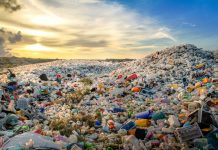A group of researchers led by WMG, University of Warwick believe that adopting a circular economy framework would help the world’s economy to recover from the effects of COVID-19
The effects of the COVID-19 pandemic have been felt everywhere due to the colossal financial loss and lockdown disruption across global supply chains, international trade, tourism and aviation and many other sectors, hampering the attainment of the United Nations Sustainable Development Goals.
In the paper, ‘A critical analysis of the impacts of COVID-19 on the global economy and ecosystems and opportunities for circular economy strategies’, a group of researchers from the UK, Malaysia, Nigeria, UAE and Japan led by WMG, at the University of Warwick, analysed the negative and positive impacts of the pandemic and concluded that a circular economy would be the best strategy for the world’s economy to recover.
Dr Taofeeq Ibn-Mohammed, from WMG, University of Warwick comments:
“The pandemic has highlighted the environmental folly of ‘extract, produce, use and dump’ economic model of material and energy flows, however the short term resolutions to cope with pandemic will not be sustainable in the long-run, as they do not reflect improvements in economic structures of the global economy.
“We, therefore, propose circular economy adoptions for all industries, with different strategies for each one. For example, embracing the transformative capabilities of digital technologies for supply chain resilience by leveraging: big data analytics for streamlining supplier selection processes; cloud computing to facilitate and manage supplier relationships; and Internet of Things for enhancing logistics and shipping processes.
“The post-COVID-19 investments needed to accelerate towards more resilient, low carbon and circular economies should also be integrated into the stimulus packages for economic recovery being promised by governments since the shortcomings in the dominant linear economic model are now recognised and the gaps to be closed are known.”
Human health and the planet
However, the pandemic has also provoked some positive influences on human health and the planet including:
- Improvements in air quality – In the UK it’s thought more lives have been saved by the reduced air pollutants compared to the number of people who died with COVID-19 in China.
- Reduction in environmental noise and traffic congestions has led to an increase in the number of people exercising outside.
- Less tourism induced by the pandemic, resulting in less exploitation of the beaches, leading to increased cleanliness.
- A decline in global primary energy use. For instance, coal use was down 8%, 60% less oil, and electricity plummeted by 20% compared to the first quarter of 2019, leading to record low global CO2 emissions.
- Triggering the need for diversification and circularity of supply chains, and evinced the power of public policy for tackling urgent socio-economic crises.
Sources:
https://warwick.ac.uk/newsandevents/pressreleases/a_circular_economy
https://www.sciencedirect.com/science/article/pii/S0921344920304869















